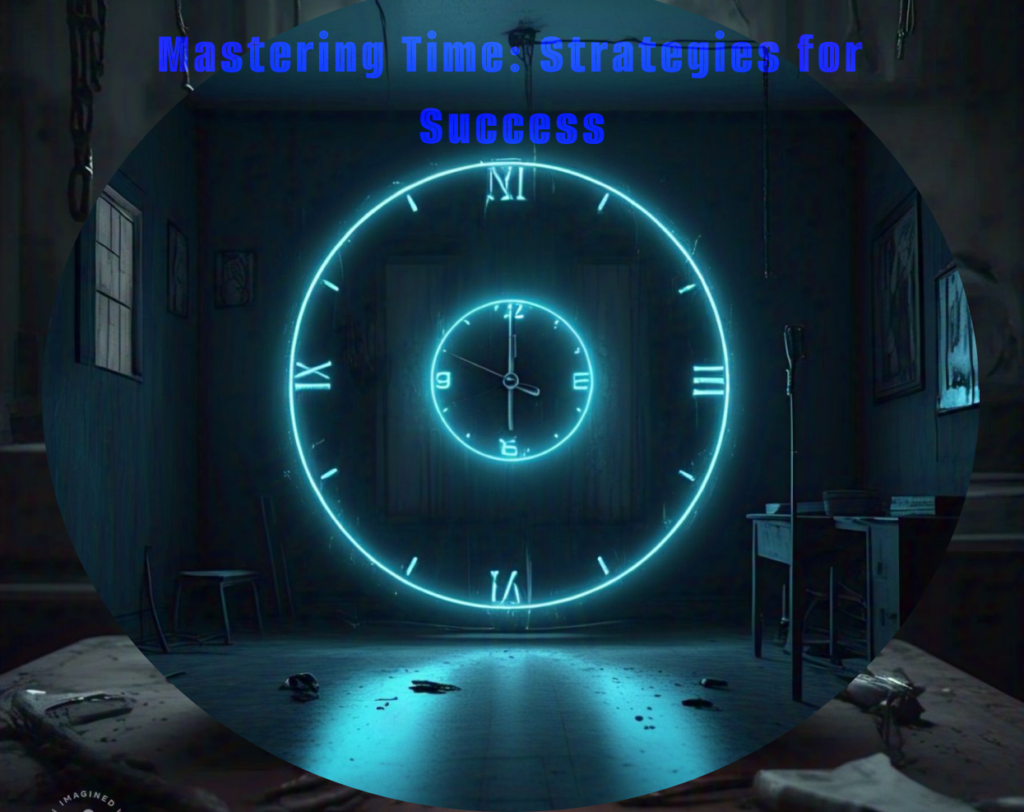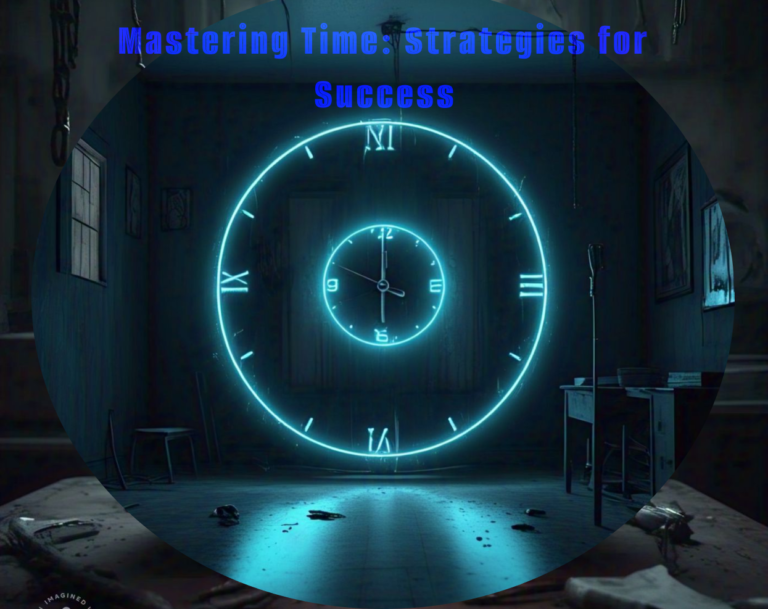
The Art of Time Management: Mastering the Clock for a Balanced Life
In today’s fast-paced world, time feels like a rare commodity. Balancing work, family, personal goals, and leisure can often feel overwhelming. Effective time management is not just about cramming more activities into your day; it’s about making conscious choices to use your time wisely and efficiently.
for more articles check in:
What is Time Management?
Time management is the process of planning and controlling how much time to spend on specific activities. It helps individuals prioritize tasks, set goals, and achieve more in less time, leading to better productivity and reduced stress.
The Importance of Time Management
- Increases Productivity
Managing your time effectively ensures that you focus on high-priority tasks, reducing procrastination and distractions. - Reduces Stress
A well-organized schedule allows you to meet deadlines calmly, avoiding last-minute rushes. - Improves Decision-Making
Knowing what to do and when to do it sharpens your focus and enhances clarity. - Creates Balance
Proper time allocation for work and personal life fosters a healthy work-life balance.
Effective Time Management Techniques
- Set SMART Goals
Goals should be Specific, Measurable, Achievable, Relevant, and Time-bound. For instance, instead of saying, “I’ll exercise more,” aim for, “I’ll jog for 30 minutes every morning.” - Prioritize Tasks Using the Eisenhower Matrix
Categorize tasks based on urgency and importance:- Urgent & Important: Do immediately.
- Important but Not Urgent: Plan for later.
- Urgent but Not Important: Delegate.
- Neither Urgent nor Important: Eliminate.
- Use Time Management Tools
Apps like Trello, Asana, and Google Calendar help organize and track your tasks effectively. - Follow the Pomodoro Technique
Work in focused 25-minute intervals, followed by a 5-minute break. This method enhances concentration and prevents burnout. - Learn to Say No
Overcommitting can derail your schedule. Politely decline tasks that don’t align with your priorities.
Common Time Wasters to Avoid
- Excessive Screen Time
Limit non-essential scrolling on social media and binge-watching. Set specific times for leisure activities. - Multitasking
Focus on one task at a time for better quality and efficiency. - Lack of Planning
Jumping into tasks without a plan leads to inefficiency. Spend a few minutes each day planning your schedule.
The Role of Discipline and Consistency
Time management requires discipline. Developing habits like waking up early, maintaining to-do lists, and sticking to your schedule builds consistency. Remember, small daily efforts compound into significant results over time.
Conclusion
Time management is a powerful skill that transforms how you approach life. By prioritizing tasks, avoiding distractions, and using your time intentionally, you can achieve your goals while maintaining balance and peace of mind. Remember, the clock is ticking—make every second count!
for more articles check in:



